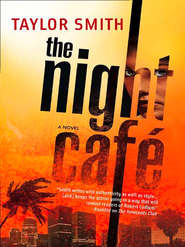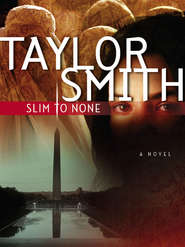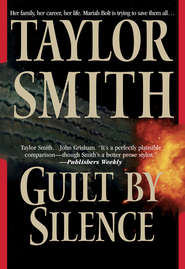По всем вопросам обращайтесь на: info@litportal.ru
(©) 2003-2024.
✖
The Innocents Club
Автор
Год написания книги
2018
Настройки чтения
Размер шрифта
Высота строк
Поля
Frank Tucker awoke in gloom and found himself crying. He froze, catching himself in mid-sob, and held his breath, ears straining. But the only sound he heard was a lonely summer rain pelting the roof like a sympathetic echo to his grief.
Though disoriented, his instincts were sufficiently honed to render him both wary and appalled at his lapse. He racked his brain to think where he was. His first thought was Moscow. Room 714, Intourist Hotel. Surveillance devices embedded in every wall.
Horrified to think the listeners might have heard him crying, he wondered if he’d been drugged to induce this sense of utter desolation. A dead weight of despair seemed to be bearing down on him, crushing his chest. He inhaled deeply, trying to cast it off, and as he did, the piney scent of wet juniper tickled his nostrils. This wasn’t the typical Russian urban perfume of diesel, must and cooked cabbage, he realized. It was the smell of his own yard, drifting in through the open window.
Then he remembered flying back that morning. The unmarked aircraft had taken off from Moscow before dawn, Tucker the sole passenger. The only cargo had been one wooden crate. Picking up eight hours on the westbound journey, overtaking the rising sun, the plane had landed at Andrews Air Force Base just in time for the morning capital commute.
The driver who met the plane on the tarmac had taken Tucker’s suit bag and put it in the trunk of a dark sedan, watching while Tucker himself loaded the wooden crate. They exchanged hardly a word on the drive from suburban Maryland to McLean, Virginia, a chase car trailing close behind. Wending its way along the beltway, the convoy had turned off at the road leading through the Langley Wood, entering the CIA complex through a subterranean passage.
There, Tucker had carted the box to his sub-basement office. Prying it open with a crowbar, he’d flipped quickly though the moldering files inside before depositing the whole bunch in his heavy steel safe. After a quick call upstairs to confirm his return, he’d slammed the safe door and spun the dial, heading home to catch up on some of the sleep that had eluded him for the two days he’d been gone.
Now, with a warm summer rain splashing on the windowsill and the damp, earthy scent around him of a world washed clean, he was back in his own wide, empty bed in suburban Alexandria, fully dressed, only his shoes kicked off before he’d crashed on top of the covers.
How long ago?
The heavy curtains were drawn tight to shut out the light of day. Tucker glanced at the digital clock next to the bed: 11:33 a.m. He’d slept less than two hours before snapping awake to the sound of his own mournful cry.
The mattress dipped as he rolled onto his side, feet dropping with a thud to the carpeted floor. He exhaled a long, shuddering sigh, and the blade of his big hands scraped the tears from his cheeks—denying even this familiar room the pathetic sight of a middle-aged man reduced to tears. He had no recollection of the dream that had moved him to this state. All he knew was that it had left him with a profound sense of loss and longing.
He knew, too, that he was ludicrous—a brooding, barrel-chested hulk whose ferocious, black-eyed scowl had once struck terror in the hearts of fools and his more timid underlings. Now, here he was, reduced to whimpering in his bed like some self-pitying boy with a complaint about the unfairness of life.
He got to his feet and walked to the window, throwing back the drapes. The cloud-shrouded day cast a gentle light across the back lawn rolling down to the creek at the bottom of his property. The grass, dry and yellowing when he’d left forty-eight hours earlier, had already been transformed to lush green. On the borders of his lot, red hibiscus, white daylilies and blue hydrangeas were all in bloom—a patriotic display in time for the Fourth of July. The long fronds of the big willow by the creek swayed in the summer rainstorm, a slow, easy dance.
No automobile horns, no loud voices, no pounding jack-hammers. After the noise and bustle of Moscow, the quiet was deafening.
Tucker passed a hand over his head, feeling stubble on a dome normally shaved bowling-ball smooth. He debated his next move. He was bone-tired, but even if jet lag was insisting it was evening, sleep wasn’t an option. His dreams, obviously, weren’t to be trusted. Anyway, he’d only meant to grab forty winks. If he went back to bed now, he’d be left to struggle with his bleak thoughts through the long, dark night to come.
He could get moving, he supposed. Shower, shave, see if he had any clean clothes. Drive back into work and tackle those old KGB files.
But what was the point? Nothing and no one depended on him. Now that he’d gotten his hands on them and spirited them out of Moscow, anyone could take over dissecting the files, for whatever they were worth. From here on in, it would be solitary grunt work, the kind meted out to old operatives who’ve lost the ability or the heart to wade through the secret jungles, waging covert war.
Tucker knew he’d been written off as a casualty of that war—wounded, though not quite slain. He’d toyed with the idea of early retirement, but at the last minute, he’d backed away from the abyss of empty years stretching before him. He was in disgustingly good health. If statistics were to be believed, he had a third of his life yet ahead of him. What he did with that time mattered to no one but himself.
His wife had been dead sixteen long years, although there were days when he still half imagined Joanne would be there when he walked in the front door. He’d lost his only son, Stephen, a year and a half earlier. What family he had left needed little from him. His daughter Carol, and her husband, Michael, were a loving couple, hardworking, good parents to their two children. Sufficient unto themselves. All they required from him was that he put in an appearance at the occasional Sunday or holiday dinner.
Until recently, there’d been a woman in his life, helping to fill the empty hours and days, but that relationship had foundered and run aground like everything else. The extra-curricular involvement with his secretary had started one night a few years back, when Patty had marched into his office after the rest of his section had gone home and demanded he take her to dinner after working her like a slave until all hours. Then she had invited him to her apartment. They’d kept on in a low-key way ever after, and when his son had died, she’d pretty much moved in, nursing Tucker through months of guilt and self-loathing.
Finally, though, understandably, she’d grown tired of the uneven arrangement, knowing there were prior claims on his heart and mind that she’d never dislodge. As the previous winter had settled in, Patty had announced one evening, with resignation but no rancor, that she was quitting the Company and moving to Florida. Tucker hadn’t been invited to go along.
“It’s not that I don’t care about you,” she’d said, her voice dusky as she busied herself with packing the suitcase on his bed. “Fact is, I love you. Always will, I guess, fool that I am.”
Tucker was standing in the doorway, arms hanging stupidly at his sides, watching her and trying to get his mind around the prospect of her absence. “Then why are you leaving?”
She’d been part of his daily existence for nearly twenty years—at first, just sitting outside his office, running interference, holding back fools and whiners, keeping his expense accounts balanced and his files straight. Lately, he’d grown even more dependent on her.
She folded a sweater in a couple of brusque movements and laid it across the suitcase. Her hairdresser had taken to putting platinum streaks in Patty’s tawny hair to camouflage the increasing gray, and they sparkled as she moved. Straightening slowly, she turned to face him. “I’m not leaving because I’m mad, Frank. Honest. I just can’t live on a one-way street anymore.”
He nodded. “I haven’t been there for you. You stood by me these last months. You’ve done for me and done for me—”
“I was glad to.”
“I don’t know why.”
She came over to him, smiling sadly, running a hand up his arm. “I do.”
He cupped her cheek, thumb tracing the deep lines around her smiling mouth and hazel eyes. Her face was well lived in, but in the soft, forgiving glow of lamplight, he saw the pretty girl she must once have been, full of hopes and dreams that wouldn’t have passed her by, if life were in any way fair. Her body, too, had lost the firmness of youth, but had acquired in its place the warmth and uninhibited generosity that comes to the best of women in middle age. “I haven’t taken care of you,” he said.
“It’s not that. You take care of me just fine. You remember my birthday. You make me chicken soup when I get a cold. You sit beside me when I watch my stupid shows and never make fun when I blubber. You check the oil in my car, keep my brakes tuned and my tires aligned. There’s not much you wouldn’t do for me, Frank, I know that. Except the one thing I really want, and that’s not your fault. You can’t make yourself be in love with me.”
He started to reply, but she put her fingers on his lips, saving them both the embarrassment of an empty protest.
“No, it’s okay. That’s just the way it is. I knew going in how things were with you. I guess I hoped it might change. Or, if not, that what we had would be enough.” She shook her head. “But it’s not. Not for either of us.”
In his heart, Tucker knew she was right. She needed more than he was capable of giving her, and cutting her losses was probably the best thing for her to do. Knowing that didn’t make it any easier, though.
She kissed him then, and he wrapped her in his arms, holding on just a little longer. The next thing he knew, they were pushing her suitcase off the bed. And it might very well have been the best lovemaking they’d ever had, but it didn’t change the fact that afterward, Patty had finished her packing, loaded her Toyota and driven away.
Sighing heavily, now, Tucker stared at the big oak bed. His and Joanne’s twins had been conceived there. She’d nursed them in the chintz-covered rocker next to it. Years later, Tucker had sat in that same chair, watching her life slip away. The Moroccan carpet beneath the chair was worn thin from the long hours of rocking.
His father had picked up the carpet in North Africa during World War II. A Marine gunnery sergeant, he’d somehow managed to cart the thing around for eight months before he was finally shipped home with a uniform full of campaign ribbons, a stump in place of his left arm and his stupid rug. He’d gone on to marry the hometown girl he’d left behind and raise six kids, of whom Frank was the eldest, all on a one-armed printer’s wage—never, to the end of his days, uttering a word of complaint about his fate.
Tucker turned abruptly and headed for the bathroom, determined to shake off the sluggishness that enveloped him like a thick, syrupy mantle. Clean yourself up, for God’s sake. Give Carol a call, let her know you’re home.
But when he dialed his daughter’s number a short while later, it was neither Carol nor Michael who picked up. It was Lindsay.
“Hi, Uncle Frank! You’re home?”
“Just got in a little while ago.” Taken aback at hearing Lindsay’s voice, he fell into an awkward silence. She was the one who finally broke it. At fifteen, she had more polish than he did, Tucker thought ruefully.
“Carol’s upstairs feeding the baby. I just read Alex a story and tucked him in for his afternoon nap. Actually, three stories. Four, if you count the one he made me read twice. I’d probably still be up there, except he fell asleep on the second reading.”
Tucker smiled. His grandson was two, a whirling dervish.
“How was your trip?” Lindsay asked.
He hesitated. She had no idea where he’d been, of course. Neither did Carol, nor anyone else for that matter. It had been a tiny group inside the agency that had studied the cryptic message that had prompted his sudden trip to Moscow. Not even the director had been briefed, so that if Tucker got himself arrested over there, or worse, the front office—and the White House, if it came to that—could claim he was a rogue operative who’d slipped the chain of command to settle some personal score. A burnout case, pushed over the edge by family problems that had nothing to do with official American policy toward its new Russian friends. Tucker had simply told Carol he’d be out of town for a while so she wouldn’t worry if she didn’t hear from him.
“Trip was fine,” he said. “Dull. Is Carol going out? You baby-sitting this afternoon?”
“No, I’m staying here for a couple of days. Mom left early this morning for Los Angeles.”
Tucker’s pulse increased a notch. He’d recruited her mother himself. Mariah had worked with him for years in the old Soviet analysis unit, but their office partnership had ended when his career self-destructed. Since then, she’d moved on to bigger and better things, while he puttered on the sidelines, out of the field of action.
“I thought the two of you were going out there together,” he said to Lindsay.
“I leave Thursday morning. There’s an exhibit opening in L.A. tonight that she has to cover. The Russian foreign minister’s going to be there.”
“Oh, right, the Romanov treasures,” Tucker said more casually than he felt. Why would Mariah be assigned to cover Zakharov’s visit? That kind of thing wasn’t in her bailiwick.











